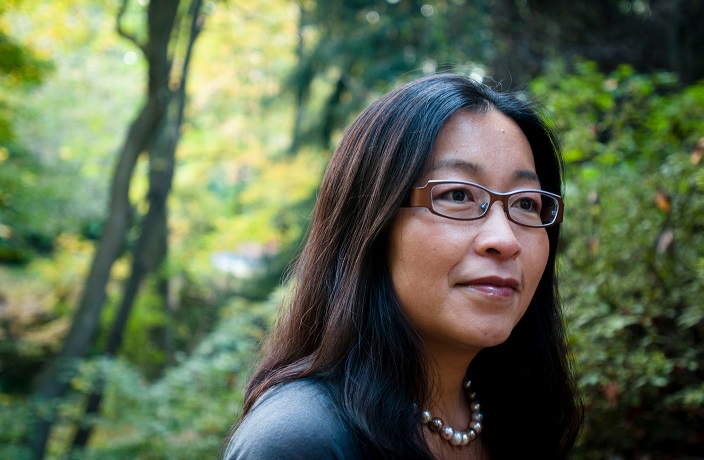This is part of our series of interviews with some of the speakers at the 2017 Shanghai International Literary Festival
Full of picturesque mountains and lakes, Dali has long been a haven for hippies and other free spirits drawn to the Yunnan city’s distinct local culture. In Travels Through Dali: With a Leg of Ham, Mei Zhang pays tribute to her hometown.
“The idea of a frontier land, a place where fusion culture is possible, is something I tried to explore in this book.” she says. “Dali is closer to Myanmar, Laos and Vietnam than to Chengdu, which positions it as a cultural bridge to Southeast Asia. The railroad connecting Kunming to Hanoi was built in 1910 while the Kunming-Chengdu line wasn’t completed until 1970. The early Catholic missionaries were lured to the region in search of people’s souls as well as rare flowers, rhododendrons and camellias.”
“The Dali region is deeply rooted in Bai ethnic culture, with its own language, religions and thousands of years of traditions. But Dali was a very important trading hub along the ancient Tea and Horse Caravan Road, which cultivated a tolerance to outsiders among its local residents.”

A “perfect climate and good food” doesn’t hurt either. Dali is famed for its cheese-making, rare mushrooms and herbs, and Zhang’s tome is part-travelogue and part-cook book. It’s stocked full of local recipes and anecdotes like a trip to a mountain village to witness the years-long preparation of the region’s famed ham.
“Yunnan food is claiming its own territory more and more as a unique school of cooking. Think of it as between Sichuan cuisine to its north – but not as spicy – and Thai cuisine to its south – but not reliant on coconut milk or curry paste,” Zhang says.
According to her, what makes the food of her home province great is the selection of fresh ingredients. “To me, the best Yunnan food embodies the hip concept of farm-totable cuisine. There is a lot of room for innovation at Yunnanese restaurants in cities like Shanghai and Beijing.”
It was while living in America in 2005 that Zhang felt a yearning to recreate the food she grew up with. Her favorite Dali dishes include mixian (rice noodles), shuijian rubing (水煎乳饼, fried cheese), ru shan (乳扇, fanshaped cheese), fried erkuai (another form of rice noodle) with ham, one pot rice with potato and ham, mint salad and clay pot fish stew. She began collecting recipes on her next trip to Yunnan but got sidetracked by her travel business, WildChina.
“The idea for WildChina came as an unintended result of a pro bono case study I did as a consultant looking at alternative development paths in Yunnan,” she explains. “I realized there was so much tourism potential but it needed to be done with care and quality. There was a growing need to have more sophisticated interpretations of Chinese cultures beyond those cheap bus tours.”

Since 2000, WildChina has been lauded for pioneering sustainable tourism in the Middle Kingdom. It’s been dubbed Best Adventure Travel Company on Earth by National Geographic Adventure, and has added Chinese language services to take local travelers abroad as the demand for international tourism rises.
For Travels Through Dali: With a Leg of Ham, Zhang documents a trip designed to loop around Cangshan clockwise to “show the impact of tourism – positive and negative.”
“It clearly shows that the villages on the west side of the mountain are a lot less developed than the ones on the east side, because the airport and main road leading to Kunming are there,” she says. “All of the salt and ham producing villages on the west side are under visited, but it feels like you can find a beautiful village hidden from tourism wherever you turn in Yunnan. Xiushan, a Buddhist mountain south of Kunming, is lovely, but not many people know about it.”
As China continues its rapid modernization, Zhang admits she’s “less concerned about the famous sites and much more about many of the unknown villages” and the threat to their traditional lifestyle and craftsmanship, an example of which are the villages and tea plantations at the foot of Huangshan near Hangzhou.
“There is one small town called Songyang in Zhejiang Province – the tea plantations and old houses are stunning. Go visit it before it’s too late,” she implores.
“Guangxi, Yunnan, Sichuan, Guizhou and Hunan are among my favorite regions to visit. My advice here is to take a slow pace in these places. Only when you slow down can you see the details of their embroidered beautiful fabric, and taste the spice in the food.”
Mar 21, noon, RMB150. See listing for Glam. Tickets available at their website.The Shanghai International Literary Festival returns to M on the Bund from March 10-22, bringing together authors of all stripes. View the full schedule here. See more interviews with 2017 Shanghai Lit Festival authors here.






















0 User Comments